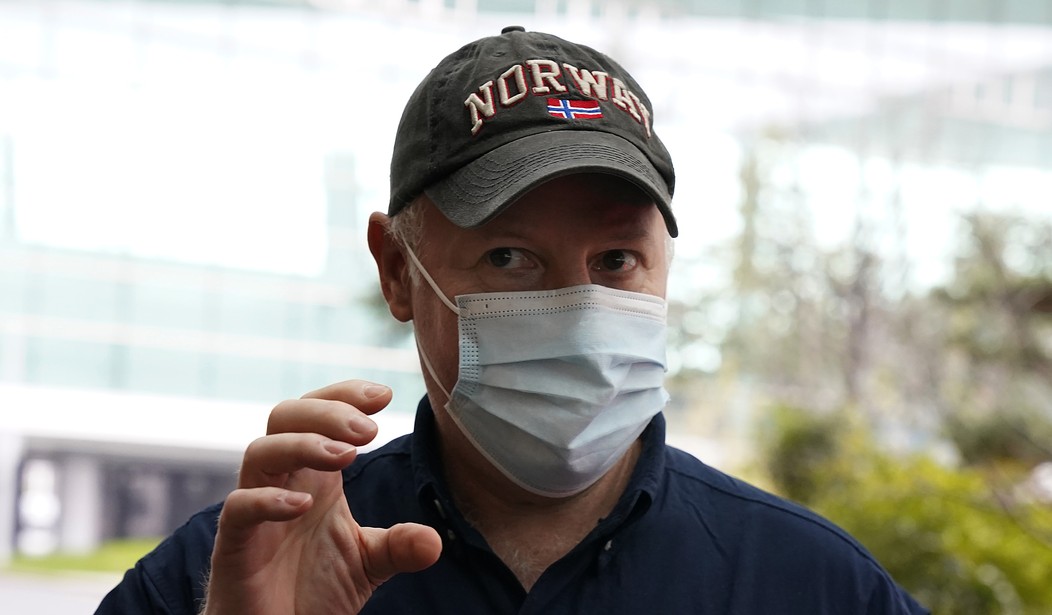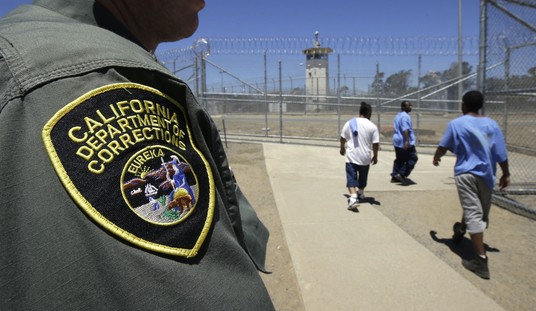Is this just more speculation, or did Republicans on the House Foreign Affairs Committee dig up a smoking gun on the origins of COVID-19? The correct answer seems to be somewhere in the middle, Josh Rogin writes at the Washington Post. Their new 84-page addendum to a previous report surfaces some indirect but compelling evidence that trouble was afoot at the Wuhan Institute of Virology well before the first acknowledged cases of infection occurred:
The House Foreign Affairs Committee minority staff, led by ranking Republican Michael McCaul (Tex.), released Monday an 84-page addendum to their previously issued report on the origins of covid-19. Their new research focuses on whether the Wuhan Institute of Virology, the world’s leading bat coronavirus research center, as well as other labs in Wuhan, could have been the source of the outbreak. The report also presents extensive evidence that the international community may need to revise its timeline of the outbreak.
“It is our belief the virus leaked sometime in late August or early September 2019,” McCaul said in a statement accompanying the release of the report. “When they realized what happened, Chinese Communist Party officials and scientists at the WIV began frantically covering up the leak. … But their coverup was too late — the virus was already spreading throughout the megacity of Wuhan.”
There has been plenty of speculation on this point, with even China suggesting that cases emerged earlier than their November 2019 timeline. They have accused the US of bringing the virus to China, but the new report notes a series of coincidences that look mighty suspicious — and they’re centered on the Wuhan lab:
As the committee’s report notes, the Wuhan Institute of Virology took its main public virus database offline on Sept. 12, 2019. Dozens of athletes from several countries who attended the 2019 Military World Games in Wuhan in late October reported they came down with covid-like illnesses either while they were in Wuhan or shortly after returning home. The committee report also references commercially available satellite imagery that shows significantly increased activity at the six Wuhan hospitals closest to the Wuhan Institute of Virology in September and October of 2019.
The committee staff also unearthed an archived version of a contract competition for a new $1.3 million “Security Service Procurement Project” that was issued by the Wuhan Institute of Virology on Sept. 12, the same day the virus database went mysteriously offline. Four days later, the Wuhan Institute of Virology announced a new contract competition to completely renovate its air conditioning system for an estimated $606 million. Both contract announcements were later scrubbed from the Chinese Ministry of Finance website.
“Based on the material collected and analyzed by the Committee Minority Staff, the preponderance of evidence suggests SARS-CoV-2 was accidentally released from a Wuhan Institute of Virology laboratory sometime prior to September 12, 2019,” the report states.
Either the bid for the new HVAC system is a grim coincidence, or Beijing knew in mid-September that some major failure had occurred at the WIV. If it was just a coincidence — a routine life-cycle replacement for the ventilation — why hide it later? For that matter, how does one explain taking the virus database offline at all, let alone at the same time as WIV announced the need for a new $1.3 million “security” project proposal?
If this pans out and becomes part of a case against the WIV, a few people might have to account for their efforts to shut down discussion of the lab-leak hypothesis. The new report shines an especially harsh light on Peter Daszak, whom the report identifies as the “public face of a CCP disinformation campaign”:
Daszak was the sole American on the World Health Organization’s study mission to China, which declared the lab leak hypothesis “extremely unlikely.” WHO Director General Tedros Adhanom Ghebreyesus later admitted that its team did not properly investigate the possibility of a lab accident origin and that more work needed to be done.
The Lancet commission on covid-19 removed Daszak from its team focusing on the origins of the pandemic after Daszak filed an updated conflict of interest statement about his collaboration with the Wuhan labs.
Even if Daszak was a willing part of a disinformation campaign — which is not yet proven — he’s hardly alone. Beijing had a lot of useful idiots working on their behalf in tamping down questions about the Wuhan lab, many of them in editorial offices at American media outlets. And for that matter at social-media platforms, which throttled discussion of the lab-leak hypothesis in an attempt to quell what those solons saw as “misinformation.”
Rogin was one of the few voices in the media to insist on taking this hypothesis seriously. He’s also cautious enough to recognize that the House Republicans’ report doesn’t prove the hypothesis — but it at least advances the case. In the absence of evidence of zoonotic transfer, this new circumstantial case makes the need for further investigation much more urgent.







Join the conversation as a VIP Member